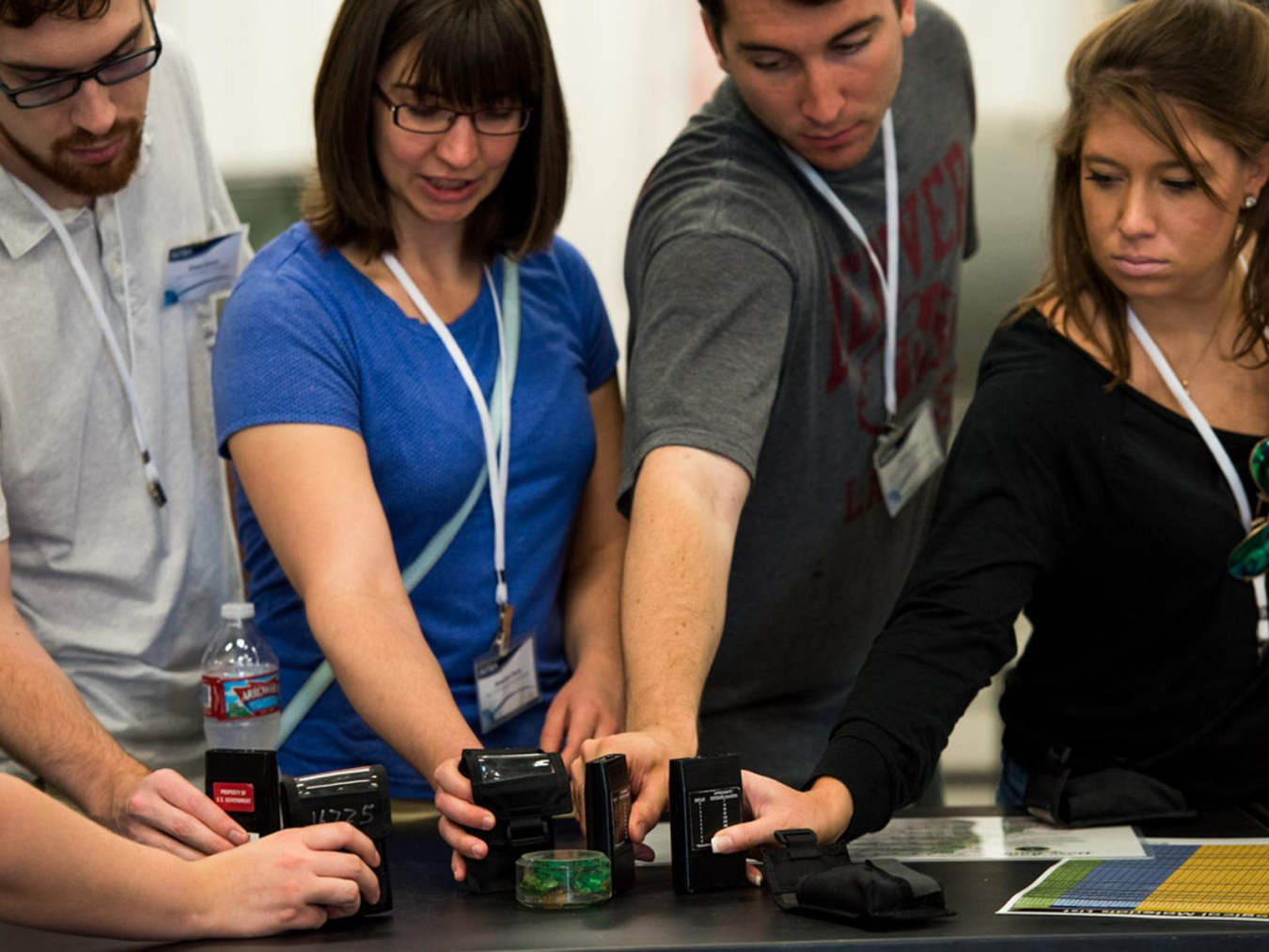Spend a year gaining hands-on experience strengthening our nation’s nuclear security in direct support of the National Nuclear Security Administration
April 16, 2020
Editor's note: this article was originally posted on Pacific Northwest National Laboratory's website.
PNNL and the National Nuclear Security Administration (NNSA) are building future leaders for nuclear security through the NNSA Graduate Fellowship Program (NGFP), a hands-on fellowship spanning the nuclear security enterprise. The fellowship’s impacts are highlighted in the recently published 2019 Annual Report.
“At NNSA, our people are our number one asset, and through our longstanding and premiere NNSA Graduate Fellowship Program, we develop high-potential professionals into the next generation of national security leaders,” said NNSA’s Chief Learning Officer and NGFP Federal Program Manager Dave Rude.
“Every year, these fellows find new and amazing ways to turn their diverse technical and policy backgrounds into meaningful contributions to our nation’s nuclear security,” said PNNL Program Manager Melanie Godinez.
Administered by PNNL, NGFP hires qualified graduate-level students into one-year, salaried assignments where they gain hands-on experience strengthening our nation’s nuclear security in direct support of the NNSA, as well as Department of State, and the Defense Threat Reduction Agency. Fellows work alongside leading technical experts, contributing to meaningful programmatic impacts within diverse mission areas. While fellows’ responsibilities vary by assignment, typical activities include:

Participating in development of the Stockpile Stewardship Management Plan, a key NNSA deliverable;
Providing operational support to national security partners at events worldwide;
Coordinating portfolios and engagements with different international partners;
Evaluating the use of new software and other tools to achieve mission objectives; andAttending hands-on training, networking, and professional development events.
“This fellowship provides a structured, yet flexible transition to a career in nuclear security,” said Erica Wolf, a current fellow who will complete the program in May 2020. During her fellowship, Wolf gained hands-on experience supporting efforts to improve foreign partner capabilities to counter nuclear smuggling. Following the completion of her fellowship, she will assume a full-time position with the NNSA Office of the Administrator. “The sincere relationships I built from this inspiring network, while sharpening my skills as a leader, have been fantastic!” she said.
Since its inception in 1995, the majority of the 500-plus fellows have gone on to careers with ties to national security, from federal hires with NNSA, to positions with national laboratories, Department of Defense, International Atomic Energy Agency, and beyond. Fellows have also been recognized for their commitment to service, with seven alumni having received the Linton F. Brooks Medal for Dedication to Public Service, an award recognizing NNSA employees with less than five years of federal experience whose actions and deeds exemplify former NNSA Administrator and Ambassador Linton Brooks’ spirit of commitment and achievement. Some have also paid it forward by helping manage the program itself.

“As I transitioned from a career in the U.S. Navy, the NGFP fellowship was the perfect springboard for launching my career in nuclear security, giving me great opportunities to learn from senior leaders in the NNSA, and eventually taking me to the International Atomic Energy Agency. Once I returned to PNNL, I couldn’t pass up the chance to give back to the program that gave me so much,” said Tom Gray, a fellow in the Class of 2015 who was awarded the inaugural Ian Hutcheon Memorial Fellowship before returning to PNNL where he now serves as the NGFP operations manager.
The program is currently accepting applications for fellowships that will begin June 2021. Students can learn more and apply online at http://ngfp.pnnl.gov or contact [email protected] for more information.

